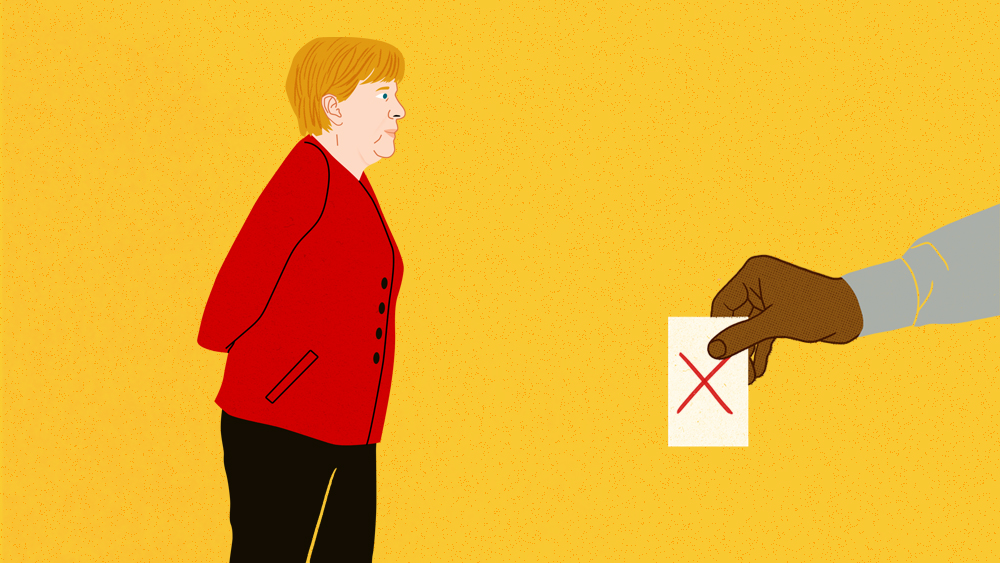Stick to the Minsk agreement, put pressure on Kiev and Moscow, keep the United States involved, and explain the sanctions policy better at home.
Dear Mr. or Ms. Chancellor,
Your new government is likely to have considerable political clout in the Ukraine conflict. While US foreign policy remains in relative disarray and France is led by an inexperienced president, Berlin could assume a leading role in the diplomatic efforts to solve the crisis. Under Chancellor Angela Merkel (know her?), Berlin was already in a strong position. But your government should step up the pressure to find a solution both the government in Kiev and the Kremlin can live with. Here are a few pointers:
Stick to the Minsk Agreement. Yes, it has proven tricky to implement, but it is the only agreement currently in existence. Any attempt to renege or replace it risks a dangerous hiatus and would give both sides incentives to act irresponsibly.
Step up the pressure on both Kiev and Moscow to implement said agreement. The longer non-implementation lasts, the higher the risk of frustrated players calling for a military solution.
Keep the United States involved. This won’t be easy given the Trump administration’s erratic foreign policy record. Make it clear to Washington that arms deliveries to Ukraine will only make matters worse.
Be honest about NATO. The possibility of Ukraine joining the US-led alliance was a key motivation for Moscow to annex Crimea and destabilize the Donbass. Now the Ukrainian public deserves to know that the West is not ready to embrace a new NATO member facing the real threat of a Russian invasion. Georgia is a point in case.
Do not ease sanctions against Russia unless there is substantial progress. In fact be prepared to introduce new sanctions. Moscow is responsible for igniting the conflict and keeps adding fuel to the fire, be it by sending arms and fighters or by spreading anti-Ukrainian sentiment via state TV. The international community (read: the West) must signal that it does not tolerate the violation of borders and meddling in sovereign states’ internal affairs.
Do more to explain the sanctions policies to domestic audiences and EU partners. Economic sanctions can be extremely powerful because the West, if it stands united, is far stronger than Russia. President Vladimir Putin clearly understands this, unlike some in the West.
Keep up the pressure on Kiev to carry out reforms and root out corruption. This is not only necessary to honor the agreements with the EU, but also a crucial part of any solution to the conflict with Russia.
Ukraine is undoubtedly the victim of Russian aggression, but it nevertheless bears some responsibility for the ease with which Moscow won control over Crimea and parts of Donbass. Ukrainian officials like to claim that people will side with Kiev as soon as they stop watching Russian TV, but this is by no means a given. Only a prosperous and stable Ukraine can become an attractive alternative to Russia’s “Russky Mir” Soviet nostalgia.
Don’t let the West be held hostage to Ukrainian demands. An effective peacekeeping force would require vast resources, while free elections in the Donbass are impossible as long as the pro-Russian military dictatorships disguised as “people’s republics” are in place.
Develop new recipes against Moscow’s ongoing propaganda campaign. While talk of “hybrid war” is often vastly exaggerated, Russian state media continues to poison the hearts and minds of audiences in Russia and (eastern) Ukraine. Foreign news outlets and recently created fact-checking and anti-fake news websites tend not to reach those audiences. Foreign governments would do better supporting home-grown critical media outlets like Russia’s Dozhd TV or Ukraine’s Novosti Donbassa.







